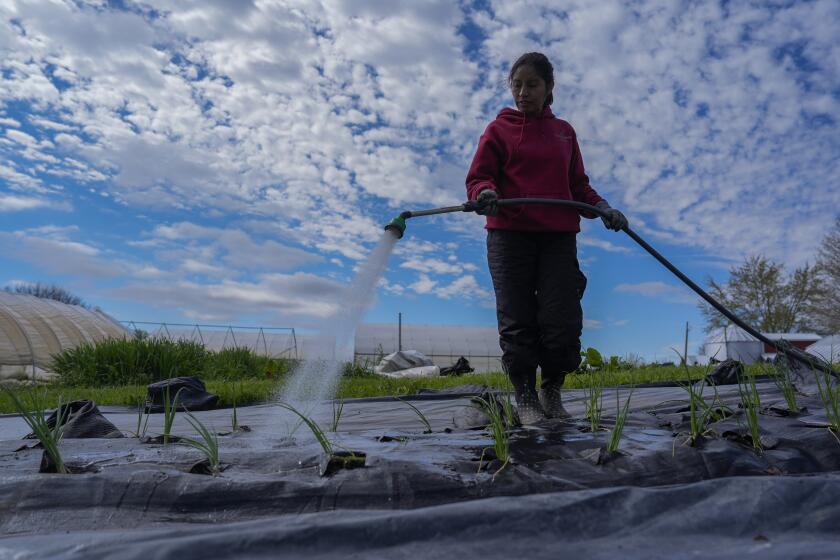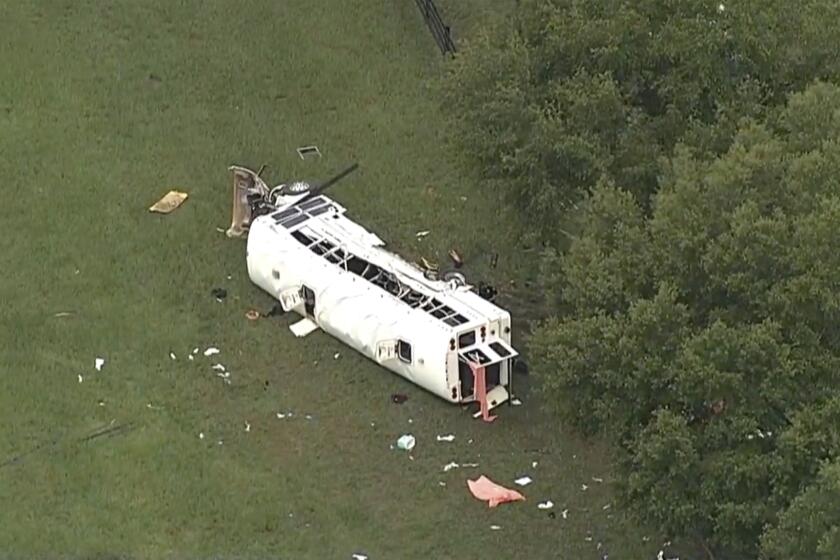EARTHWATCH : Green or Not : Before and after Prop. 128, we will have to depend on ourselves to protect the environment.
There’s no telling where you’re going to get an idea for a newspaper column these days. I found mine in this paper’s coverage of the recent re-release of “Gone With the Wind” in Moscow.
I was looking for a way to express my attitude toward the upcoming vote on Proposition 128, better known as “Big Green” or the “Hayden Initiative,” depending on who’s talking. It seems to me that, whether Californians support or condemn the measure, the outcome may be irrelevant.
Last week, a Muscovite attending the release of GWTW spoke a quaint and powerful line, in which I found the essence of what I’d been struggling to state--not in pessimism but in hope. About the events in the film--and they could apply to the changes going on in his city as well--he said: “It clearly shows that in all the world we must most depend on ourselves.”
Here in our cities today, self-reliance is going to be necessary. The idea that we “must most depend on ourselves” is important to consider. What that means, environmentally speaking, is that whether Proposition 128 passes or not, we are going to be left with problems.
The environment involves not just cash--the availability or unavailability of tax money to pay for regulation--but also “sweat equity.” And not just the usual sweat equity. We’re going to have to sprain our brains (self-discipline) as well as our backs (toting recyclables).
In Ventura County there’s a healthy tradition of self-starting. Apropos Proposition 128, we’re already “post proposition” in getting away from carcinogenic pesticides in the citrus industry (which is two-thirds of our agricultural output), according to Earl McPhail, county agricultural commissioner. He’s the man who enforces pesticide bans. As you know from these columns, we’re the friendly bug-farm capital of the world--raising beneficial insects used instead of chemicals for pest control in agriculture.
McPhail thinks local growers are more aware of pesticide problems than growers in other counties, and this was done as a result of market savvy in response to consumer trends toward healthy eating. My theory is that Californians are doing 128. And other states are fighting the idea because they’re not doing it.
This week’s Wall Street Journal has a rather hysterical cover story painting our rising ecological consciousness as something like a plague (“All U.S. May Be Affected”). Please. The measure is neither that Draconian nor, as such, that well thought out. But our behavior here, already manifest to the Wall Street Journal, is a sign of something serious. McPhail says such measures, even if ill-conceived, can pass because voters have the attitude: “We’re going to fix it even if (the repair) is wrong.”
As an indication of what seems to be going right in this county, I received a greeting card this week from a fellow at a local department store, a guy who runs the receiving dock.
I’m most grateful to Jim Rose for reminding me how we folks in this county “must most depend on ourselves.” His card went on to chronicle what he and other dock managers had done in they way of “business recycling at the Broadway.”
I checked this out with the chain’s management and learned that Jim and two of his colleagues started this program on their own. It was not a management “command and control” thing. It didn’t need to be. Hereabouts I think folks are ahead of politicians and corporate management. They know what they need to do and are going to do it before, during and after all the votes are counted.
More to Read
Start your day right
Sign up for Essential California for news, features and recommendations from the L.A. Times and beyond in your inbox six days a week.
You may occasionally receive promotional content from the Los Angeles Times.






